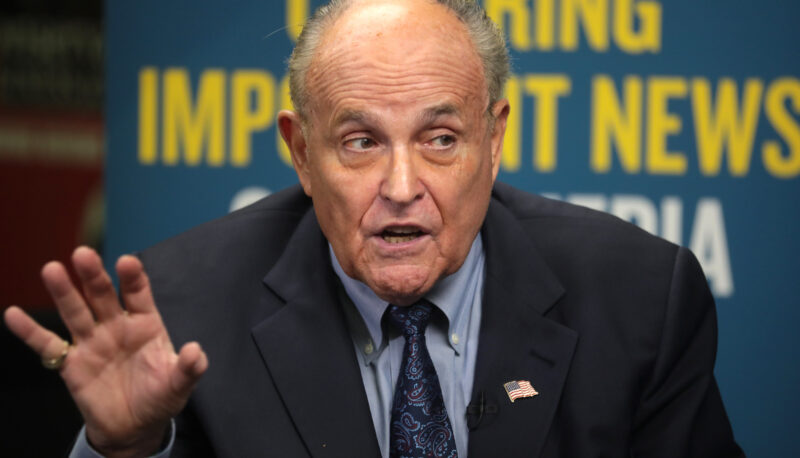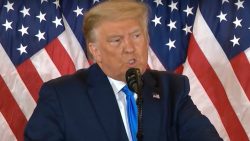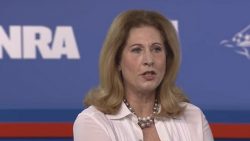The House select committee investigating the Jan. 6, 2021, attack on the U.S. Capitol held its second hearing Monday. At the heart of the second hearing: how former President Donald Trump knew he lost the 2020 presidential election but continued to make false stolen-election claims anyway—claims that outraged his supporters and drove some of them to violence.
Rep. Zoe Lofgren of California led questioning. Four witnesses appeared in person: Chris Stirewalt, the former Fox News digital political director who was ousted after accurately calling Arizona for Joe Biden; Ben Ginsberg, a veteran GOP election lawyer; BJay Pak, the former U.S. attorney for the Northern District of Georgia; and Al Schmidt, a Republican former city commissioner in Philadelphia.
The committee’s star witness for today’s hearing, Bill Stepien, who served as Trump’s campaign manager, was scheduled to testify in person but pulled out at the last moment after his wife went into labor. Video interviews with Stepien and other Republican witnesses told the rest of the story: that Trump continued to make false claims about election fraud even after his advisers told him they weren’t true.
Here are four takeaways from the second day of the hearings.
Trump’s advisers told him the election was still up in the air and that he should not declare victory.
On Nov. 3, 2020, Rudy Giuliani, the former mayor of New York and Trump’s personal lawyer, wanted to speak to the president. It was Election Day, and votes were still being counted as the evening wore on.
Giuliani was directed to speak first with Trump campaign advisers Stepien, Jason Miller, and Justin Clark, as well as Chief of Staff Mark Meadows. An “intoxicated” Giuliani wanted Trump to “declare victory and say we won it outright,” Miller said.
“It was far too early to be making any calls like that,” Stepien told the committee. “Ballots were still being counted, ballots were still going to be counted for days. And it was far too early to be making any proclamation like that.”
Miller, too, thought it was too early. “I was saying we should not go and declare victory till we had a better sense of the numbers,” he told the committee.
Ivanka Trump, who was in the White House with her father that evening, said “the results were still being counted, it was becoming clear that the race would not be called on election night.”
Eventually, Giuliani did speak to Trump that evening.
When Stepien told the president that the election was still undecided and advised him against declaring victory, Trump told Stepien that he thought Stepien’s assessment was wrong and that he’d be going in a different direction.
In the wee hours on Nov. 4, 2020, Trump took to a podium in the East Wing of the White House and spoke to his supporters. He declared premature victory.
“This is a fraud on the American public,” he claimed. “Frankly, we did win this election.”
Trump replaced his advisers with crackpot election conspiracy theorists.
Two teams within the White House began to take shape, according to Stepien. “Team Normal” on one side, made up of Stepien and others, and “Team Crazy” on the other, with Rudy Giuliani and Trump team lawyer Sidney Powell.
Giuliani and Powell’s election-fraud theories—which included that 100,000 ballots for Biden were brought in waste paper baskets, that an algorithm flipped votes for Biden, and that Hugo Chavez was behind election machine fraud—were seen as far-fetched by many of Trump’s advisers from the very beginning.
“What they were proposing, I thought, was nuts,” Trump White House lawyer Eric Herschmann told the committee.
But as “Team Normal” told the president that these allegations of fraud had no merit, he began to sideline them in favor of “Team Crazy.”
“I have confidence in Rudy,” Trump reportedly told Jared Kushner after Kushner raised concerns about the false election-fraud theories.
Trump’s own DOJ said claims of voter fraud were false. Trump continued to repeat these false claims.
The allegations of voter fraud were “bullshit,” former Attorney General William Barr said he told the president.
The Department of Justice looked into the “avalanche” of voter fraud claims, with Barr describing the process as a game of “whack-a-mole.” From the beginning, the claims were “bogus and silly and usually based on complete misinformation,” he told committee investigators, echoing statements he had made during a March interview with NBC’s Lester Holt.
At one point, Trump asked Barr to intervene, and Barr, who was a loyal ally to Trump, explained that the Department of Justice does not choose sides in elections.
On Dec. 1, 2020, Barr told the Associated Press there was no evidence of widespread fraud, and no evidence of fraud that would have affected the outcome of the election. Trump was livid. In a conversation with Trump, Barr explained that the voter fraud claims were false and “idiotic.”
“I told him that the stuff his people were shuttling out to the people was bullshit,” Barr said.
The next day, on Dec. 2, 2020, Trump released a video repeating some of the very same claims Barr said were meritless.
Barr resigned in December. “He was becoming detached from reality,” Barr said. “I didn’t want to be a part of it.”
After Barr left, Jeffery Rosen, the acting Attorney General, continued to investigate voter fraud claims and told Trump that they were false. Richard Donoghue, the former acting attorney general, did as well.
“There were so many of these allegations that when you gave him a very direct answer on one of them, he wouldn’t fight us on it, but he’d go on to another allegation,” Donoghue said.
Barr remains unmoved by Trump’s continued claims of voter fraud.
“My opinion then and my opinion now is that the election was not stolen by fraud,” Barr told the committee.
Trump and his campaign defrauded supporters, raising $250 million on false pretenses.
Between Election Day and Jan. 6, the Trump campaign sent millions of emails to supporters. Many alleged fraud and called on small-dollar donors to help fund the Election Defense Fund, claiming that their donations would allow the campaign to fight voter fraud.
Only that fund, the select committee says, never existed.
“I don’t believe there is actually a fund called the Election Defense Fund,” Hanna Allred, a former Trump campaign staffer, told the committee.
Gary Cober, former Trump campaign digital director, called the nonexistent fund a “marketing tactic.”
The campaign raised $250 million off of it. Most of the money went to Trump’s “Save America PAC,” and not to election litigation, according to committee investigators. From there, the money went to pro-Trump organizations, including: $1 million to the Conservative Partnership Institute (connected to Meadows and promoting voter suppression in the name of “election integrity”); $1 million to America First Policy Institute (connected to several Trump former administration officials); over $200,000 to the Trump Hotel Collection; and $5 million to Event Strategies, Inc. (which ran the Jan. 6, 2021, event on the Ellipse).
—
In the first hearing, the select committee laid out a seven-part plan by Trump to overturn the 2020 election. Monday’s hearing examined the first part of that plan: how Trump convinced millions of Americans that the electron was stolen from him by overwhelming fraud, even as his own legal advisers told him he lost the election. This created the justification for Trump supporters to march on the U.S. Capitol, a point Rep. Liz Cheney drove home in her opening statement.
“Mr. Chairman, hundreds of our countrymen have faced criminal charges, many are serving criminal sentences because they believed what Donald Trump said about the election and they acted on it,” Cheney said. “They came to Washington, D.C., at his request, they marched on the Capitol at his request, and hundreds of them besieged and invaded the building at the heart of our Constitutional Republic. “
The select committee will hold its next hearing Thursday at 1 p.m. ET.







